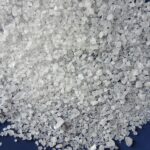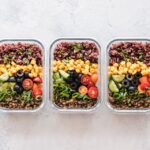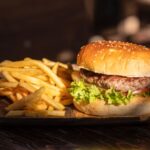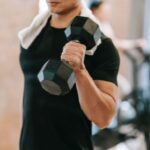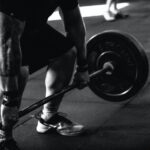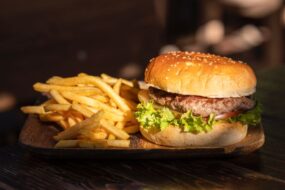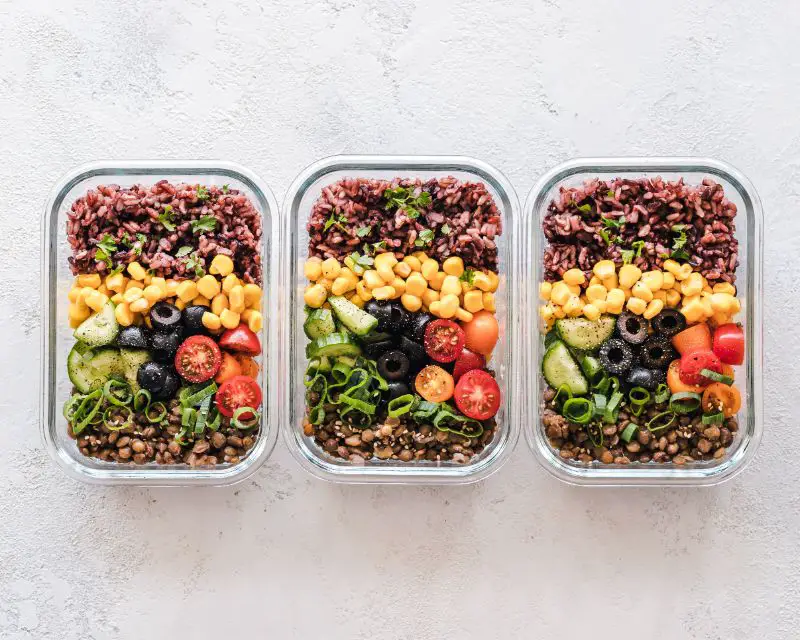
Table of Contents (click to expand)
Understanding the Importance of Post-Workout Nutrition
The fitness community and sports medicine professionals have long emphasized what to eat after lifting weights. This is not only essential for post-workout recovery but also to promote muscle growth.
The post-workout meal is critical in replenishing depleted glycogen stores and stimulates muscle protein synthesis for efficient muscle repair. This article delves into how body weight, muscle protein synthesis, and post-workout nutrition interact to optimize your fitness results.
The Science of Muscle Protein Synthesis
How Resistance Training Stimulates Muscle Growth
Resistance training causes microscopic damage to the muscle tissue, a process necessary for muscle growth. This damage signals the body to initiate muscle protein synthesis, a biological process using dietary protein and essential amino acids to repair and grow muscle tissue.
The quality of protein intake is key, with high-quality protein sources containing all nine essential amino acids being the most effective at promoting muscle protein synthesis. Therefore, it is beneficial to include eating protein in your post-workout meal.
Related: How Many Push Ups a Day to Build Muscle: A Comprehensive Guide
Post Workout Nutrition: What is it?
How Post-Workout Nutrition Facilitates Muscle Recovery
Post-workout nutrition refers to the food and drinks consumed after an exercise session. A balanced post-workout meal aims to replenish glycogen stores, stimulate muscle protein synthesis, and aid overall recovery. You can ensure an optimal post-workout recovery by eating a combination of proteins for muscle repair and carbohydrates to refill energy reserves.
Importance of Body Weight in Post-Workout Nutrition
Adjusting Post-Workout Meals According to Your Body Weight
Body weight is a significant factor in post-workout nutrition. Generally, the more you weigh, the more protein and carbohydrates you must eat post-workout. The American College of Sports Medicine recommends eating 1.2 to 2 grams of protein per kilogram of body weight daily for optimal muscle protein synthesis.
Ideal Components of a Post-Workout Meal
How Proteins Contribute to Muscle Repair
Eating protein post-workout helps repair exercise-induced damage to muscle fibers and stimulates the growth of new muscle tissue. Whey protein is a popular choice due to its high content of essential amino acids and rapid absorption rates.
Role of Carbohydrates in Energy Replenishment
Carbohydrates consumed after a workout restore glycogen stores, promoting faster recovery and preparing your body for future workouts. High-glycemic carbohydrates like white bread and sports drinks are absorbed quickly, raising blood sugar levels and promoting glycogen synthesis.
Importance of Fats in Hormonal Balance
While it is commonly advised to limit fat intake immediately post-workout, not to slow digestion, healthy fats still play an essential role in overall post-workout nutrition. Fats are necessary for hormonal balance, including testosterone which plays a critical role in muscle building.
Timing of Your Post Workout Meal: When to Eat After Lifting Weights
For most people, consuming a post-workout meal within 45 minutes to an hour after training is adequate. This is when your body is most efficient at using nutrients for muscle protein synthesis and glycogen storage.
Related: When to Drink Protein Shakes for Weight Loss
Top 5 Foods to Include in Your Post-Workout Meal
- Lean Protein: Lean meat, eggs, and dairy are rich in essential amino acids for muscle repair.
- Complex Carbohydrates: Foods like sweet potatoes, brown rice, whole wheat bread, and whole grain bagels provide long-lasting energy and help replenish glycogen stores.
- Fruits: Fruits like bananas and oranges provide quick-digesting carbohydrates, essential vitamins, and minerals.
- Protein Shakes: A protein shake with whey protein or a plant-based protein powder is an easy and convenient way to get protein post-workout.
- Sports Drinks help replenish fluids and electrolytes lost during an intense workout. Tart cherry juice has also been shown to aid recovery due to its high antioxidant content.
How Hydration Impacts Muscle Recovery
The Role of Water in Post-Workout Nutrition
Proper hydration is crucial in aiding digestion, nutrient absorption, and overall recovery. Water helps transport nutrients to your cells and supports every metabolic function. Post-workout helps replace the fluids lost through sweat during your exercise session.
The Role of Supplements in Post-Workout Nutrition
How Protein Supplements Support Muscle Protein Synthesis
Suppose whole foods are not immediately available after a workout. Supplements like whey protein can be a convenient alternative to ensure you meet your protein needs and stimulate muscle protein synthesis.
When and How to Use Creatine for Recovery
Creatine, often used in resistance and endurance sports, can be beneficial post-workout to replenish your body’s stores and support recovery. It’s typically recommended to take creatine with a source of carbohydrates to increase its absorption.
Debunking Post Workout Nutrition Myths
Despite the hype surrounding certain trends, consuming massive amounts of protein post-workout or relying solely on supplements is unnecessary or beneficial for most people. A balanced, nutrient-dense meal is the best way to support muscle repair and growth.
Customizing Your Post-Workout Meal According to Training Goals
Post-Workout Nutrition for Weight Loss
If your goal is to lose weight, the focus should be on creating a calorie deficit. However, consuming adequate protein to support muscle recovery and maintenance would be best.
Post Workout Nutrition for Muscle Gain
If muscle gain is the goal, you’ll want to eat enough protein to stimulate muscle protein synthesis and consume more carbs to create a calorie surplus.
Related: How much weight can you lose in 2 months?
Impact of Dietary Restrictions on Post-Workout Nutrition
Vegan Options for Post-Workout Meals
Even on a vegetarian diet, plenty of plant-based proteins can aid in muscle recovery. Examples include quinoa, lentils, tofu, and tempeh.
Gluten-Free Choices for Muscle Recovery
For gluten-intolerant people, gluten-free carbohydrates like sweet potatoes, rice, and gluten-free oats are excellent for refilling glycogen stores.
Meal Prep Ideas for Post-Workout Nutrition
Planning your post-workout meals can save you time and stress. Some examples include preparing protein shakes in advance, making turkey sandwiches on whole wheat bread, or hard-boiling eggs for a quick protein source.
Benefits of Consulting a Nutritionist for Post-Workout Meals
A sports dietitian can help tailor a post-workout nutrition plan to your needs, preferences, and fitness goals. They can ensure you consume balanced, nutritious foods in the right amounts to support muscle recovery and performance.
Common Mistakes in Post-Workout Nutrition and How to Avoid Them
A common mistake is not consuming a balanced meal post-workout. It’s not just about protein; carbohydrates and fats are also vital. Another common mistake is waiting too long to eat after a workout, missing the optimal nutrient timing window for muscle recovery.
How Sleep and Recovery Go Hand-in-Hand with Post-Workout Nutrition
Good nutrition should be coupled with adequate sleep, as sleep is when much of the body’s repair and growth processes occur. Consistent sleep patterns and quality sleep enhance the benefits of proper nutrition.
Long-Term Benefits of Proper Post-Workout Nutrition
Proper post-workout nutrition not only aids in immediate recovery but also prepares your body for future workouts, helps maintain lean muscle mass, and contributes to long-term fitness and health outcomes.
What Not to Eat After Lifting?
It’s essential to avoid foods that are low in nutrients and high in processed sugars and unhealthy fats after a workout. This includes items like sodas, pastries, and deep-fried foods.
It’s also recommended to limit the intake of alcohol post-workout, as it can impair muscle protein synthesis and recovery processes. High-fiber and high-fat foods may also be better avoided immediately post-workout, as they can slow down the absorption of protein and carbohydrates.
How Should I Eat After a Workout to Build Muscle?
To build muscle, you must consume adequate amounts of high-quality protein to stimulate muscle protein synthesis and enough carbohydrates to refill your energy reserves.
Foods rich in lean protein like chicken, fish, eggs, or tofu and complex carbohydrates like whole grains, fruits, and vegetables are excellent choices. A ratio of 2:1 or 3:1 carbs to protein is often recommended for optimal muscle recovery and growth.
How Long Should I Wait to Eat After Lifting?
The ideal time for a post-workout meal is 45 minutes to an hour after your workout. This is known as the “anabolic window,” where your body is primed to absorb nutrients for muscle repair and growth.
However, the urgency for a post-workout meal is less critical if you have a pre-workout meal close to your workout. Nonetheless, you should not delay your post-workout meal for longer than two hours.
Related: What to Eat Before Lifting Weights
Conclusion
Knowing what to eat after lifting weights is crucial for muscle repair, growth, and recovery. By incorporating high-quality proteins, adequate carbohydrates, and healthful fats into your post-workout meal, you can optimize your muscle protein synthesis and prepare your body for future workouts.
References and Further Reading
To learn more about post-workout nutrition and how to optimize it for your specific needs and goals, refer to reputable resources such as the American College of Sports Medicine and consult with a registered sports dietitian or a fitness professional.





